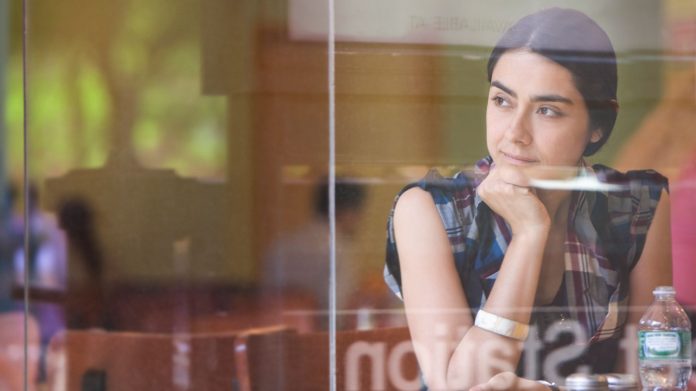[ad_1]
A big move to a new city. Leaving a relationship that’s run its course. Starting a new job in a completely different field.
These big life decisions come with sky-high stress even in the best of times. Throw living through a pandemic into the decision-making process and the stakes seem even higher.
Still, nearly a year into the pandemic and various degrees of lockdown, most of us are itching for change of some kind. Why is that? For many people, the pandemic has accentuated problems that already existed, therapists say.
If you were sick of being single in before times, the pandemic might have exacerbated your “forever alone”-ness. If you’ve disliked living at home with your parents, even the smallest of studio apartments sounds ultra appealing right now. If you couldn’t deal with your company’s abysmal work-life boundaries, you might be tempted to take a pay cut at nearly any place else to escape.
“Before you were able to mask your discontent or it was not as bad when you worked outside of the home, saw friends and were having more pleasure in your life doing other things,” psychotherapist Jennifer Stone told HuffPost. “Compared to now when we have more limited choices and can’t spend our time differently.”
Alexis Bleich, a clinical co-director at Kip Therapy, said many of her clients are thirsty for change, too. The monotony that marks our days now has acted as a big motivator for shaking things up ― but with that comes worries that taking action might be reckless or unwise.
However, more often than not, the issues you might have are pretty much in line with what you were wrestling with pre-pandemic. They’re just made much more clear and stark now that we’re all stuck at home, alone with our thoughts.
“The fear and frustration of having your life on pause for such a long time can highlight very real concerns, especially for clients who are making decisions that are time sensitive, such as a pregnancy or even going to college,” she said.
In New York City, where both Bleich and Stone have offices, quite a few clients have been mulling big life moves. For instance, with rents so high, many are trading city living for the suburbs and the promise of a backyard. (And obviously, there are plenty of instances where people have no say in the matter; they’re let go from their jobs or need to downsize or move back in with their families for financial support.)
When clients do have a say but feel uncertain to jump, Stone tells them that even in the best of times, there’s no way to foresee how a decision will pan out.
“What I always tell people is that one needs to carefully examine the decision but also accept that we will never know with 100% certainty that it was the right decision until later on,” she said. “It’s only after that you can see with clarity if it was ultimately the right or wrong decision.”

Liz Higgins, a therapist in Dallas who primarily works with millennials, said many clients are considering weighty relationship decisions ― whether to stay or go, or whether to take a healthy relationship to the next level.
Her advice to them is pretty simple: If you’re feeling an internal sense of peace, reciprocal respect and solid communication flowing with your partner, go for it, regardless of the pandemic. (And on the flip side of the coin, if you can’t recognize any of that in your relationship, it may be time to leave.)
“Just because this is a trying time doesn’t mean it’s not the right time to move forward with bigger life decisions,” Higgins said. For all the stress inherent in a pandemic, you still have agency and the ability to make smart decisions once you’ve examined both sides.
“I have seen couples navigate deciding to get pregnant, buying a home, proceeding with their wedding celebrations in drastically different ways, and the way they are able to do this in a healthy way is by taking extra care of the health of their relationship, checking in with each other, and maintaining time for transparent, rational conversation about their lives and their expectations,” she said.
Here’s how to know if you should hold off on making any pandemic-pegged decisions.
When might you want to press “pause” on a decision till after the pandemic is a little more under control?
If you think you might mistakenly be attributing your feelings about the pandemic to your current life choices, take a beat, said Gina Delucca, a psychologist at Wellspace SF in California. It’s been a year of discontent, so don’t be surprised if you’re feeling well, discontent.
“The feelings you are having in response to the pandemic ― feelings of restlessness, sadness, loneliness or boredom ― are normal reactions to what you’re going through,” she said. “It doesn’t necessarily mean that something is wrong with your current life.”
Besides that, don’t act if you haven’t fully examined your rational side and your emotional side, Stone said.
“They need to align to be able to make a sound decision,” she said.
Also hold off if you’re feeling any subtle peer pressure.
“If several friends have moved or made big life decisions, you might feel pressured to do the same, but we need to remember what is right for one person may not be the same for another,” Stone said.

Ask yourself these questions before making a big life decision.
How do you know if you’re making a sound change or acting out of discomfort or uneasiness about pandemic? Ask yourself: “Am I moving toward something or away from something?” said Dara Bu Elliott, a life and career coach at Wellspace SF.
“For example, it’s more sustainable to quit a job to take one that’s more aligned with your values and your vision for your life than to quit to escape a sense of restlessness and boredom,” she said.
Jess Davis, an associate marriage and family therapist at Wellspace SF, shared a short list of questions that also might help determine if your big life change is the right call:
- Have you meditated, journaled or spent intentional time in deep reflection of your desired outcome for the change?
- Do you have a pattern for impulsive decision-making?
- Was this major life change on your radar pre-pandemic? If so, has anything in your environment made it easier or harder to make the change?
- Do you have supportive relationships and a self-care practice to help strengthen your well-being during a transition?
In the end, major life changes are highly personal and circumstantial, Davis said. You’re the expert on you, and only you can decide what the best course of action is.
“After all, you’re the one that has to live with any decision,” Davis said. “What you can do is take an honest inventory of the motivation behind the desired change and then take it from there.”
[ad_2]
Source link






















